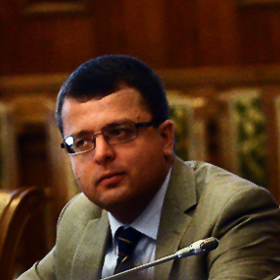
Gazprom's Uncertain Future
Writing for The Moscow Times, EWI Senior Fellow Danila Bochkarev discusses the impact of independent producers on Russia's gas market.
Prime Minister Dmitry Medvedev shocked many in Davos on Wednesday when he told Bloomberg that "Gazprom may lose its monopoly on gas exports from Russia."
This statement underscores the rise of the independent gas producers and marks a paradigm shift for the Russian gas market. Last year, Gazprom's production decreased 5.4 percent, while the independents increased their output. For example, Novatek's production grew 7.1 percent in 2012.
Inside Russia, the key impact has been that Gazprom, the dominant supplier, lost important clients such as E.On Russia. There was a similar story at a previous development, when Qatari gas first started to compete in Europe. Traditional suppliers lost market share because of newcomers' competitive pricing.
Currently, gas trade in Russia is regulated by the Federal Tariffs Service, or FTS. While Gazprom has to respect FTS' prices within a 3 percent margin, independents can sell below the minimum tariffs, allowing them to gain market share. In an oversupplied gas market, the reintroduction of spot trading, expected this fall, could boost even more the expansion of the gas independents at the expense of Gazprom.
Independents have key advantages over Gazprom. They can secure new supply contracts, control lifting costs and buy gas production and distribution assets. Their ability to lobby for tax breaks has also contributed to their success. For example, the favorable tax regime was a key factor in Total's decision to partner with Novatek.
Independents' ambitions are not limited only to Russia. In November, Novatek requested an exemption from the gas export monopoly. If Novatek is successful, Rosneft, an emerging gas producer, might follow suit.
While the monopoly will formally remain intact, the energy independents may be allowed to bid for specific export quotas. If implemented, this measure will probably lead to a smaller Gazprom, which will have to increase its operational efficiency and will need to review some of its ambitious projects. But it will also improve the image and market position of Russian gas in Europe's liberalized energy market.

